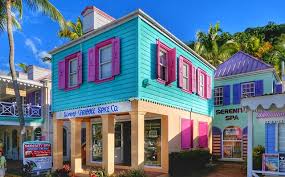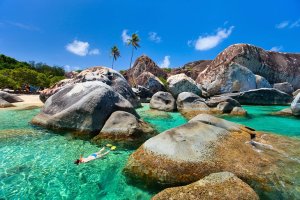The British Virgin Islands: A Historical Odyssey
Nestled in the heart of the Caribbean Sea, the British Virgin Islands (BVI) stand as a testament to the dynamic interplay of history, geography, and culture. Comprising over 60 islands and cays, this British Overseas Territory boasts a rich and fascinating history that spans centuries. From indigenous peoples to European colonizers, pirates to plantations, and finally, to the present-day haven for tourists and financial services, the story of the BVI is a captivating narrative that reveals the complex tapestry of the Caribbean.
- Indigenous Peoples Long before European explorers set their sights on the Caribbean, the British Virgin Islands were inhabited by the Arawak and Carib indigenous peoples. These early inhabitants lived in relative harmony with the lush and bountiful natural resources of the islands, subsisting on fishing, farming, and crafting.
- European Discovery and Colonization The arrival of European explorers in the late 15th century marked the beginning of a new era for the British Virgin Islands. Christopher Columbus is often credited with being one of the first Europeans to discover the islands during his second voyage to the Americas in 1493. However, it was the Dutch who were the first to establish a European presence, naming the islands “The Tortugas” due to the abundance of turtles in the area.

The colorful buildings in Road Town, Tortola
The islands exchanged hands multiple times between the Dutch, English, and Spanish during the 17th century, but it was the English who ultimately established a lasting presence in the BVI by the mid-17th century.
- Pirates and Privateers One of the most intriguing chapters in the history of the British Virgin Islands is their association with piracy. During the late 17th and early 18th centuries, the islands became a notorious hideout and base of operations for legendary pirates such as Blackbeard and Captain Kidd. The treacherous waters, numerous secluded coves, and the proximity to major trade routes made the BVI an ideal hub for pirates. To this day, legends of hidden treasure on the islands continue to capture the imagination of treasure hunters.
- Plantation Era With the decline of piracy, the British Virgin Islands transitioned into a more stable period of European colonialism. The islands’ economy revolved around sugar and cotton plantations, with enslaved Africans playing a pivotal role in these industries. Slavery persisted in the BVI until 1834 when it was officially abolished in the British Empire.
- Emancipation and Post-Slavery Struggles After the abolition of slavery, the British Virgin Islands underwent a period of social and economic transformation. Formerly enslaved individuals sought to establish their own communities and livelihoods. The islands’ economy diversified into fishing, subsistence farming, and boat-building. The BVI was also affected by the global economic forces of the 19th and 20th centuries, with fluctuations in agriculture and trade impacting the islands’ prosperity.
- Becoming a British Overseas Territory The British Virgin Islands officially became a British Crown Colony in 1950 and later transitioned into a British Overseas Territory. This status granted the islands a degree of self-governance while still maintaining a strong connection to the United Kingdom. The BVI’s legal system and government structure are rooted in British traditions, and English remains the official language.
- The Rise of Financial Services In the latter half of the 20th century, the British Virgin Islands underwent a significant transformation that would redefine their economic landscape. The islands evolved into a global financial center, attracting international businesses and financial institutions due to favorable tax policies, financial privacy, and political stability. The BVI’s offshore financial sector flourished, making it one of the world’s leading offshore finance destinations.
- Modern Tourism The British Virgin Islands have also become renowned as a tourist paradise. With their idyllic beaches, crystal-clear waters, and vibrant coral reefs, the islands have attracted visitors seeking natural beauty and relaxation. Tourism has become a crucial industry for the BVI, with numerous resorts, sailing charters, and water-based activities drawing tourists from around the world.
- Natural Disasters and Resilience Despite its enchanting allure, the BVI has not been immune to the destructive forces of nature. The islands have faced numerous hurricanes and tropical storms throughout their history. In recent years, Hurricane Irma (2017) caused widespread devastation, leading to significant efforts in rebuilding and strengthening the islands’ infrastructure and resilience.
- A Cultural Tapestry The history of the British Virgin Islands has shaped a unique and vibrant culture. The islanders have preserved their African, European, and indigenous roots in their traditions, cuisine, and music. Festivals like the BVI Emancipation Festival celebrate the islands’ rich heritage, and the people take pride in their unique cultural identity.

The Baths in Virgin Gorda is one of the most popular destinations in the BVI
In conclusion, the history of the British Virgin Islands is a captivating journey through time, characterized by the interplay of indigenous peoples, European colonialism, piracy, and the evolution into a modern financial and tourist hub. This remarkable archipelago, with its pristine beaches and deep-rooted culture, continues to be a testament to the enduring resilience and adaptability of its people. The British Virgin Islands remain a jewel in the Caribbean, where history, nature, and modernity converge in a fascinating and ever-evolving narrative.
